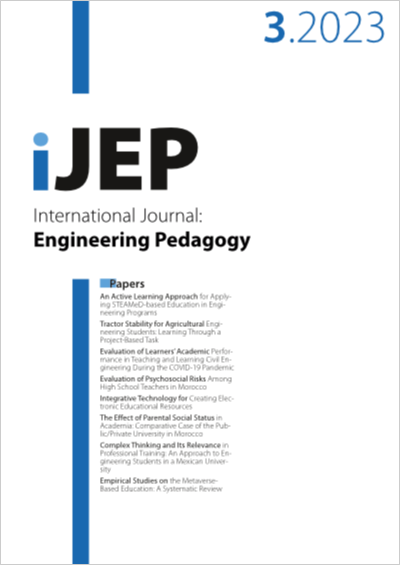Complex Thinking and Its Relevance in Professional Training: An Approach to Engineering Students in a Mexican University
DOI:
https://doi.org/10.3991/ijep.v13i3.36885Keywords:
Professional education, Educational innovation, Future of education, Complex thinking, Engineering training, Higher EducationAbstract
This article aims to present the results of an analysis of the level of perceived achievement of the complex thinking competency among a group of engineering students in their last semester at a university in Western Mexico. The intention is to identify whether this population has the necessary skills to meet challenges and solve problems related to the demands of their future professional environments. Specifically, we not only seek to know the level of perception of achievement of complex thinking but also to understand its behavior and the possible existence of differences between the male and female populations. Methodologically, exploratory and multivariate descriptive statistical analyses were carried out. The results showed that the participants felt a high level of perceived achievement of the complex thinking competency, which was more noticeable in the male population.
Downloads
Published
How to Cite
Issue
Section
License
Copyright (c) 2023 Marco Cruz-Sandoval, José Carlos Vázquez-Parra, Martina Carlos-Arroyo, Marco Vinicio del Angel-González

This work is licensed under a Creative Commons Attribution 4.0 International License.



